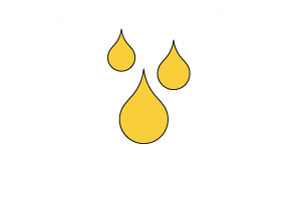
How to Incorporate Different Fats and Oils into a Balanced Diet for Optimum Heart Health - By Guest Nutritionist Kate Law
The Key Points about Fats & Oils
Compared to carbohydrates and protein which both provide 4 calories per gram, fats provide us with over double that at 9 calories per gram(1). This means that we must be mindful of the quantities we use and make good choices around the different types available to us.
Fats provide our bodies with energy but are also a carrier for vitamins A and D to be transported around the body (1). These are known as fat soluble vitamins and are important for us to stay healthy. Ensuring we consume enough fat within our diet is also important as fat stores are required for us to stay warm and insulate our organs.
Fat comes in a several different forms and ensuring we have a mix of these is important. The types of fat are saturated, unsaturated (polyunsaturated and monounsaturated) and trans fat. Knowing whether the fat is solid or liquid at room temperature is an easy way to determine which type of fat it is. Fats that are solid, such as butter or coconut oil, contain mostly saturated fat and those that are liquid, such as rapeseed oil, contain mostly unsaturated fat. Butter is almost entirely saturated fat whereas a rapeseed oil or olive oil contain mostly unsaturated fat.
Unsaturated fat is also broken down into 2 types, monounsaturated and polyunsaturated. Both are important and cold pressed rapeseed oil is a source of monounsaturated fat and polyunsaturated fat. The polyunsaturated fats of cold pressed rapeseed provide Omega 3 and Omega 6, in a ratio of 1:2. These can't be made by the body so we have to get them from food, of which rapeseed oil is a great source.
The effect of different fats on the body and heart health
Eating too much saturated fat can increase cholesterol levels within the body. There are also other factors such as genetics which can influence these levels too so it’s important to generally consume more unsaturated fats than saturated fats (2).
Rapeseed oil is an unsaturated fat and there is good evidence to suggest that having a higher ratio of unsaturated fat to saturated fat can help to lower cholesterol levels. This doesn’t mean we should completely remove saturated fat from our diet, but it does mean we should aim to include more unsaturated fat. A high intake of saturated fat has been shown to increase levels of low density liporotein (LDL) cholesterol which can increase your risk of heart disease or stroke by causing blockages in your arteries (1).
The final type of fat is trans fat (or partially hydrogenated fat) which is used in food manufacturing to prolong shelf life. Trans fats are linked to an increase in cholesterol levels and despite trans fats not yet being banned in the UK (like many other countries) many manufacturers signed a voluntary agreement in 2012 committing to remove them from processing. They are commonly found in heavily processed sweet foods and fast foods and are dangerous because their chemical structure is artificially changed for them to be useful. This is really the only type of fat we don’t require (3).
What could a balanced intake of fat look like over a day?
Whilst there are many ways to include fats and oils into your daily diet below are a few examples of meals and ingredients you could use to ensure you are obtaining a wide variety.
• Breakfast: 2 free range egg omelette, made with onions and peppers fried in Farrington’s Mellow Yellow Cold Pressed Rapeseed Oil, eggs beaten with milk & 1 teaspoon butter. Salt & pepper.
• Lunch: Smoked salmon & cream cheese bagel.
• Dinner: Harissa chicken thigh and vegetable traybake. Chicken and vegetables seasoned with harissa and Farrington’s Mellow Yellow Cold Pressed Rapeseed Oil with feta and balsamic, full recipe here.
• Snacks: Slice of homemade banana bread made with Farrington’s Mellow Yellow Cold Pressed Rapeseed Oil, ½ avocado and sliced tomato on 2 rice cakes.
This article was written by Registered Associate Nutritionist Kate Law who is the Founder and Director of The Food Boss a nutrition consultancy specialising in women’s health, sports nutrition and working with the food industry. You can find Kate on Instagram @the_food_boss_

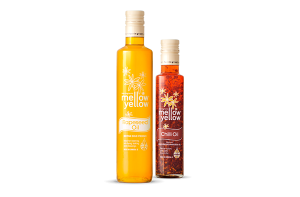 Oils
Oils Rapeseed Oil
Rapeseed Oil Chili Oil
Chili Oil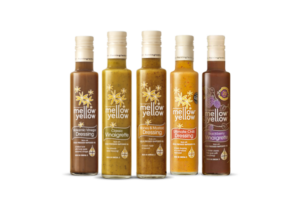 Dressings
Dressings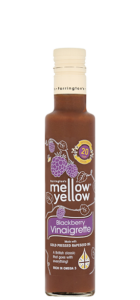 Blackberry Vinaigrette
Blackberry Vinaigrette Classic Vinaigrette
Classic Vinaigrette Balsamic Dressing
Balsamic Dressing Honey & Mustard
Honey & Mustard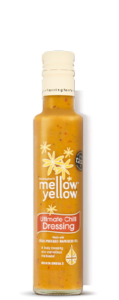 Ultimate Chilli Dressing
Ultimate Chilli Dressing


